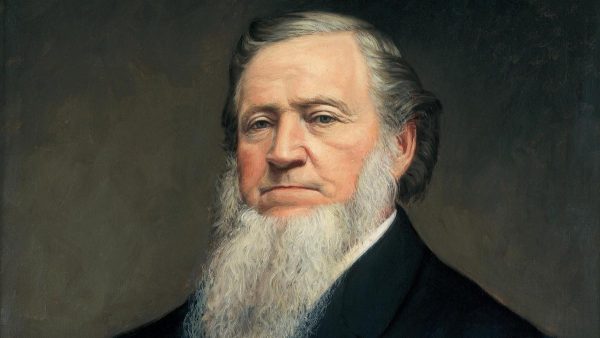The following comes from Margaret C. Roberts, wife of B. H. Roberts.
All men are not equal to bearing the strain that a mission imposes upon them, most of them win their fight for their faith when brought in contact with the world, but it pains me to say that my brother was not among those who thus succeed. Of a keen intellectual temperament, he read widely before and while on his mission and paid much attention to the works of historians and philosophers, some of whose works make for doubt rather than for faith. This resulted first in doubts, then in unfaith, which he frankly confessed to his mission associates. In this frame of mind, of course, he was unsuited for the work of a missionary and the authorities of the British mission advised his return home, but in their unsympathetic policy towards him, furnished means for his fare only to New York.
Here, he landed without friends or money. In a short time, he was stricken with typhoid fever. He wrote me of his condition. Naturally my sympathies went out to him. We had been close companions, and playmates, throughout our childhood days. He had always assumed an air of protection towards me, and in return I admired and love him as best, gentlest, and most gallant of all brothers. He was my first hero –
“Seemed his triumphs, my success,
Seemed my sadness his own sorrow.”
My disappointment and suffering over his loss of faith were intense, my heart yearned to help him. Not having means myself to send for him (for I wanted him to come home) I appealed to my father, reasoned, begged for him to send the necessary means. Perhaps my father concluded that the experience he was passing through would be good for him and bring him to a realization of the great mistake he had made.
After spending much time in prayer, I decided to lay the case before President Young. And for this purpose I started for his office. As I reached the gate, President Young alighted from his carriage accompanied by several of the brethren, but he passed on without having seen me, and I had not the courage to make any attempt to attract his attention. What do do now I did not know, what I did however was to pray for another chance. In a moment he came back and stood upon the little porch of his office, evidently looking at the sunset glow. Courage came to me and I [spoke] to him. Doubtless noting my distress he led the way into his office and then I told him the whole story. He quickly remarked, “The brethren should have paid his passage back to his home, where he started.” I said, “Yes, but perhaps you do not know that he has lost faith in our Church and its message to the world.” “That makes no difference,” he said, “they should have sent him home.” He asked me if I had any money, I told him no but I had a fine set of furs which I would sell if we could find a buyer. Then he inquired if my father had the means. I said, “Yes, but he refuses to send it to him.” He said, “Go and tell your father to come to me, now, this evening (putting his hand tenderly on my shoulder), and don’t suffer any more. Money shall be telegraphed to your brother this night, and I promise you that he shall live, and come home to you. When he lands here, bring him to me.” The money, supplied by my father, was telegraphed that night and in due time, my brother arrived in our city, thin, weak, and pale.
Although he was older than I was, I felt that I must take his mother’s place. So I urged him to go with me to meet President Young. An interview was arranged. Upon entering this great man’s presence, my brother received a most hearty welcome. The president shook hands with him, called him by his given name – Theodore. It was like a father welcoming home his son. The interview that followed I cannot write, language fails me. The gentle admonition, his encouraging words, his blessing upon my brother came from the divine spirit in Brigham Young’s soul. It was too grand to have merely a human origin. My brother acknowledged to him that since leaving the Church he had felt himself withering like a leaf from a tree in Autumn. The Prophet advised that Theodore reconsider the questions that brought doubt and darkness into his mind, pray for light, and that when satisfied he could out of a good conscience, renew his covenants in holy baptism. The end of it was that one fine day, a Brother Leaker, a faithful elder from our ward, my brother, and I went up City Creek canyon to a convenient place where baptism could be performed, and there my brother renewed his covenant and regained his fellowship in our Church.
Source: The Young Women’s Journal: Vol XXXI, pg 135-136

